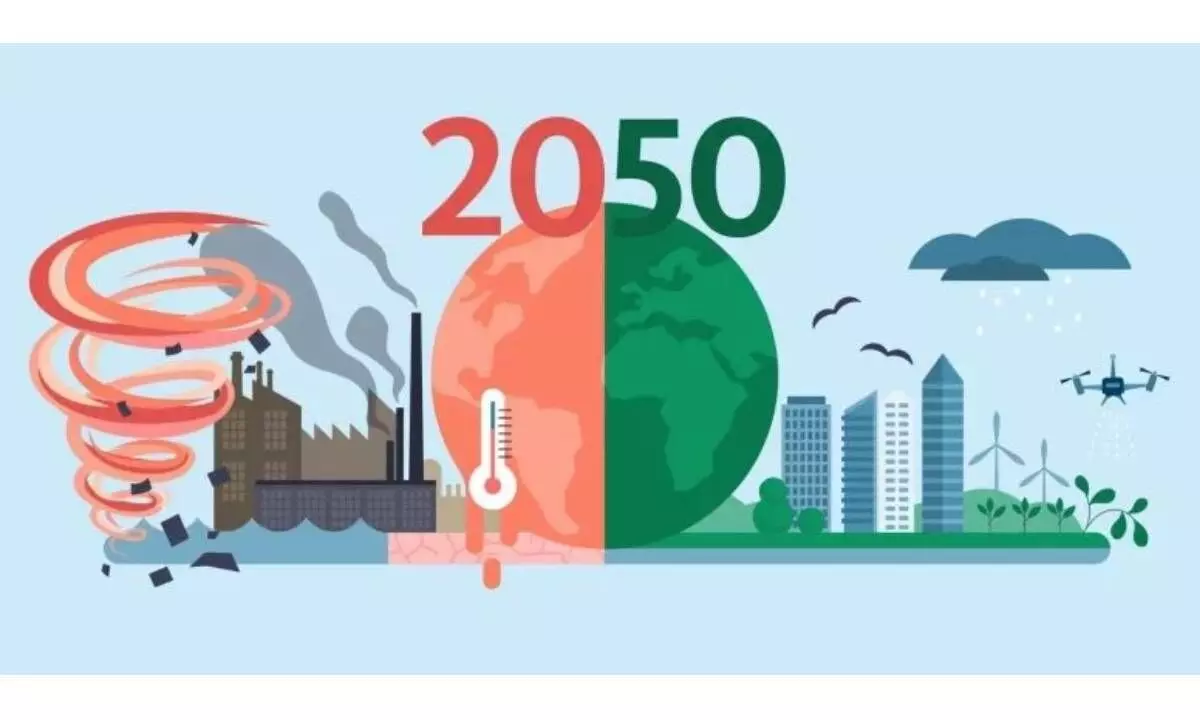Tech firms should resolve to prevent water crisis globally
The lack of water and sanitation locks women in a cycle of poverty
image for illustrative purpose

Water connects every aspect of life. Access to safe water and sanitation can quickly turn problems into potential – empowering people with time for school and work, and contributing to improved health for women, children and families around the world.
Today, 2.2 billion people – one in four – lack access to safe water and 3.5 billion people – two in five – lack access to a safe toilet. These are the people we empower.
Women and girls spend 200 million hours every day collecting water. Women are disproportionately affected by the water crisis, as they are often responsible for collecting water. This takes time away from work, school and caring for family. The lack of water and sanitation locks women in a cycle of poverty.
Empowering women is critical to solving the water crisis. When women have access to safe water at home, they can pursue more beyond water collection and their traditional roles. They have time to work and add to their household income.
The water crisis is a health crisis. Nearly 1 million people die each year from water, sanitation and hygiene-related diseases which could be reduced with access to safe water or sanitation. Every two minutes a child dies from a water-related disease. Access to safe water and sanitation contributes to improved health and helps prevent the spread of infectious disease. It means reduced child and maternal mortality rates. It means reduced physical injury from constant lifting and carrying heavy loads of water. Now more than ever, access to safe water is critical to the health of families around the world.
Children are often responsible for collecting water for their families. This takes time away from school and play. Access to safe water and sanitation changes this. Reductions in time spent collecting water have been found to increase school attendance, especially for girls. Access to safe water gives children time to play and opportunity for a bright future. 29% of schools lack access to basic water and sanitation.
Time spent gathering water or seeking safe sanitation accounts for billions in lost economic opportunities. $260 billion is lost globally each year due to lack of basic water and sanitation. Access to safe water and sanitation at home turns time spent into time saved, giving families more time to pursue education and work opportunities that will help them break the cycle of poverty.
Universal access to basic water and sanitation would result in $18.5 billion in economic benefits each year from avoided deaths alone.
Water is the primary way in which we will feel many of the effects of climate change. Millions of families in poverty live in regions where water access is limited, temporary, or unstable. They are less prepared to face the effects of climate change like temperature extremes, floods, and droughts. Access to sustainable safe water and improved sanitation solutions can support climate resiliency for the people who need it the most.
By 2025, 50% of the world’s population is projected to live in water-stressed areas as a result of climate change, with low-income families bearing the greatest brunt of this crisis.
With millions of users reliant on their online services, Microsoft, Google, and Meta have witnessed a surge in water consumption.
According to a study from the University of California, Riverside, published in Nature, there is an urgent need to uncover and address the undisclosed water footprint of AI models, particularly in light of escalating freshwater scarcity, prolonged droughts, and ageing water infrastructure.
The concern intensifies as leading tech companies vie to introduce products utilizing generative AI, powered by extensive language models capable of processing vast amounts of data.
These models necessitate substantial computing power, driving the establishment of massive server farms that rely on chilled water for cooling systems, some of which evaporates in the process while some can be recycled.
Water, a crucial resource across various forms of energy generation, including hydroelectric power and thermal power stations, has seen notable spikes in consumption by tech giants.
In 2023, the consumption was even more. These companies have set targets to replenish water resources, aiming to return more water to systems like aquifers than they consume by 2030, through initiatives like enhancing irrigation infrastructure and restoring wetland systems.
Calls for enhanced transparency and data disclosure from AI firms have emerged, urging detailed breakdowns of water consumption across different computing services. While some companies like OpenAI have expressed commitment to improving efficiencies, others like Google have refrained from commenting on the issue.

